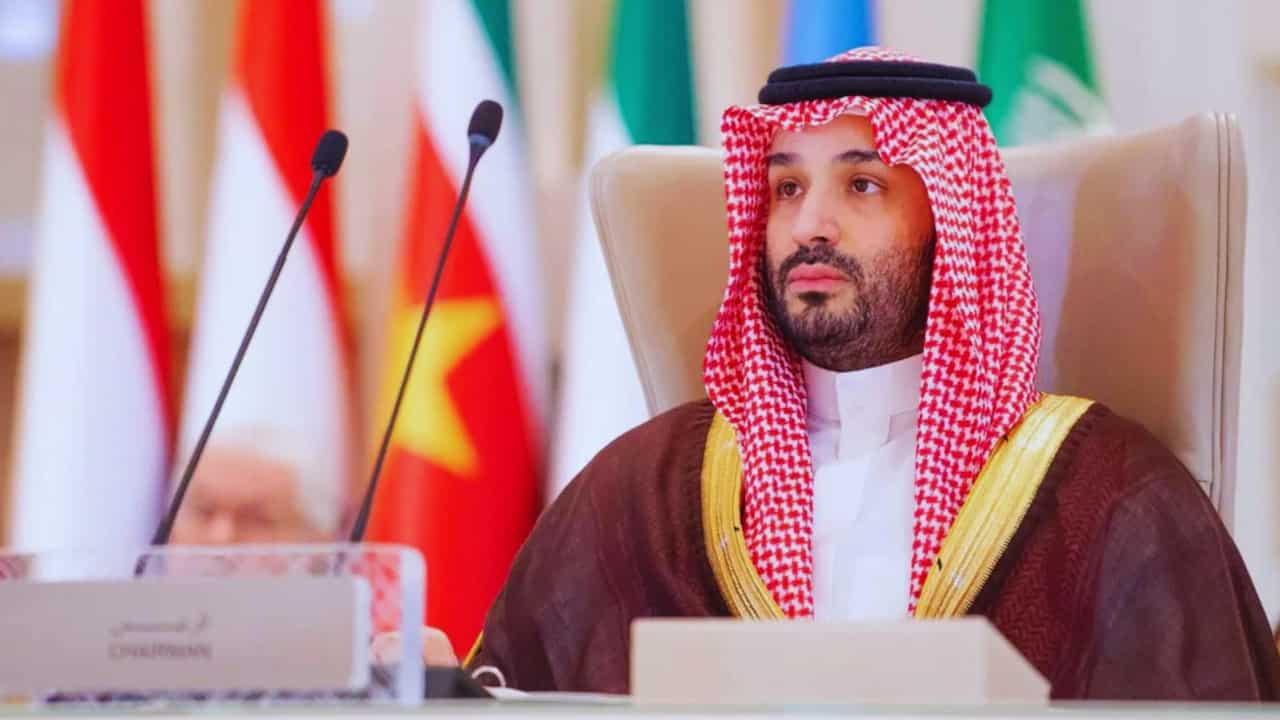Middle East at a Crossroads: Saudi-Israel Relations Shatter as Regional Tensions Soar
In a dramatic shift that’s reshaping Middle Eastern politics, Crown Prince Mohammed bin Salman (MBS) has taken his strongest stance yet against Israel, accusing it of “collective genocide” in Gaza. This marks a striking turn in what was once a promising path toward peace between the two nations.
Leaders from across the Islamic world gathered in Riyadh for an extraordinary summit on Monday, and MBS didn’t hold back. His clear condemnation of Israel’s actions in Gaza signals a major change in Saudi Arabia’s diplomatic approach. The death toll in Gaza has now reached a staggering 43,000, with more casualties reported daily.
The timing couldn’t be more critical. With Donald Trump set to return to the White House, regional powers are quickly adjusting their positions. Saudi Arabia, once eager to normalize ties with Israel, has now firmly stated that any such deal is “off the table” without Palestinian statehood—a demand that Israeli Prime Minister Benjamin Netanyahu flatly rejects.
What’s particularly intriguing is the Saudi kingdom’s shifting stance toward Iran. In a move that would have seemed impossible just a few years ago, MBS defended Iran’s sovereignty and called for its protection from Israeli attacks. This is the same leader who once compared Iran’s Supreme Leader to Hitler—talk about a diplomatic U-turn!
The Riyadh summit brought together an unlikely group of leaders. Picture this: Palestinian President Mahmoud Abbas, Jordan’s King Abdullah II, and even Iran’s First Vice President sharing the same room. It’s like a high-stakes poker game where former enemies are suddenly playing on the same team.
But here’s where things get really interesting. While Riyadh hosted this unity show, over in Jerusalem, far-right minister Bezalel Smotrich was pushing for annexation plans. You couldn’t ask for a clearer picture of the deep divide in Middle East politics right now.
Looking ahead, there are several key factors at play.
- Trump’s Return: The incoming U.S. president’s approach to the region remains unclear, though his previous statements suggest strong support for Israel.
- The growing ties between Saudi Arabia and Iran indicate that they are no longer solely relying on the United States.
- Palestinian Question: The kingdom’s firm stance on Palestinian statehood has become a non-negotiable condition for any deal with Israel.
The risks for Saudi Arabia are real. As Hussein Ibish from the Arab Gulf States Institute points out, normalizing ties with Israel could threaten the kingdom’s leadership role in both the Arab and Islamic worlds. Plus, there’s the tricky matter of keeping domestic peace—Saudi citizens aren’t exactly cheering for closer ties with Israel right now.
The stark contrast between Riyadh and Jerusalem tells us everything we need to know about the current state of Middle East politics. On one side, we have Saudi Arabia calling for Palestinian rights and Iran’s protection. On the other hand, we have Israeli officials planning territorial expansion.
For the incoming Trump administration, pushing normalization under these conditions will be like trying to mix oil and water. The gap between Saudi and Israeli positions has grown from a crack to a chasm, and bridging it will take more than just diplomatic sweet talk.
Riyadh’s message is unambiguous: they are prepared to negotiate, but the cost has significantly increased. It’s not just about Palestine anymore; it’s about a broader regional stability that includes Iran. Whether this new reality can align with Trump’s Middle East vision remains to be seen.
As the region enters this new phase, one thing is certain: the simple days of quiet backroom deals are over. Any future agreements will need to address the complex web of regional relationships, from Gaza to Tehran and everything in between.
